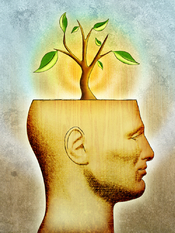The Information Age
 Gary Catona Posted on
Gary Catona Posted on  Friday, November 9, 2012 at 04:00PM
Friday, November 9, 2012 at 04:00PM  The basic problem of any culture centers on issues of information and knowledge, and more to the point, how to acquire the right information and knowledge. Information is the accumulation of facts of experience, and knowledge is the understanding that is gained from organizing these facts, seeing their meaningful relationships, and inferring their significance. The ultimate purpose of culture, then, is to pass to human beings, through whatever means available, the information and knowledge that will ensure their survival and potential for reproduction, as well as to provide a world of meaning in which they can think and act productively and harmoniously with other human beings. Each generation is responsible for gathering the right facts and gaining necessary understanding in order to promote cultural life. This is no easy task. A major source of the problem is that each generation has to start from scratch, so to speak, and acquire anew the information and knowledge that the previous generations garnered; information and knowledge are not carried through genes. One of the great responsibilities of any culture, therefore, is the transfer of information and knowledge from one generation to the next. This is the meaning of education.
The basic problem of any culture centers on issues of information and knowledge, and more to the point, how to acquire the right information and knowledge. Information is the accumulation of facts of experience, and knowledge is the understanding that is gained from organizing these facts, seeing their meaningful relationships, and inferring their significance. The ultimate purpose of culture, then, is to pass to human beings, through whatever means available, the information and knowledge that will ensure their survival and potential for reproduction, as well as to provide a world of meaning in which they can think and act productively and harmoniously with other human beings. Each generation is responsible for gathering the right facts and gaining necessary understanding in order to promote cultural life. This is no easy task. A major source of the problem is that each generation has to start from scratch, so to speak, and acquire anew the information and knowledge that the previous generations garnered; information and knowledge are not carried through genes. One of the great responsibilities of any culture, therefore, is the transfer of information and knowledge from one generation to the next. This is the meaning of education.
Information and knowledge are always subject to interpretation. This is unavoidable because human beings always only have partial information and limited knowledge. Because both exist in unlimited supply, we will always face corrections as we acquire more information and gain more knowledge. Additionally, human beings are naturally perspectival—that is, any gain of information or knowledge is always from a limited, finite viewpoint. This means that humans could never, even in principle, gain the "full picture" of any subject. Information and knowledge are also subect to interpolation, distortion, and bias and run the risk of being eliminated altogether, either accidentally or purposefully. Humankind's cultural transference mechanisms, in other words, could never be absolutely sufficient to ensure that each generation acquires reliable and truthful information and knowledge. This is one of the frustrating apects of being human. The best we can do is try our best to pass on the most accurate information and the most reliable knowledge that we possess.
Reader Comments